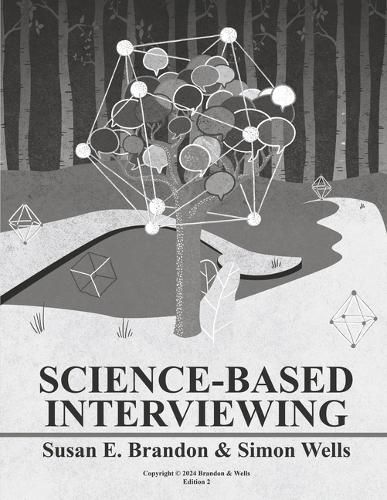Readings Newsletter
Become a Readings Member to make your shopping experience even easier.
Sign in or sign up for free!
You’re not far away from qualifying for FREE standard shipping within Australia
You’ve qualified for FREE standard shipping within Australia
The cart is loading…






This book is intended to help law enforcement officers and intelligence agents interview people (criminal suspects, witnesses, victims, or intelligence sources) who are assumed to have information relevant to an event in the past (e.g., a bank robbery) or an event in the future (e.g., intentions to bomb a shopping mall). In fact, the methods have broad application: they also are relevant to attorneys, Human Resource agents, insurance investigators, and bank auditors - to anyone with similar needs to acquire information from human sources in a reliable manner. The book provides specific, step-by-step advice for such interviews, from planning for the interview to closing an interview. The contents of the book are based on current science. Consistent with a wealth of science collected in the past several decades, the fundamental premise of this book is that a person is more likely to share critical information - that may be embarrassing or damaging to themselves or others they care about - if that person is approached in a humane and respectful manner.
There has been much criticism of the interrogation procedures used by American police. However, to date, there have been few alternative methods offered. The science-based methods described here, that are respectful, empathetic, and honest, are an alternative. They will provide information useful to the prosecution, the defense, or a military unit or an intelligence agency, and will do so in a manner that protects our safety and advances the course of justice.
The chapters here roughly follow the course of an interview, beginning with planning and preparation (Chapters 2, 3 and 4) and continuing on to rapport (Chapter 5), listening (Chapter 6), eliciting a narrative (Chapter 7), and questioning tactics (Chapter 8). Chapter 9 describes how to use evidence to collect information, Chapter 10 provides tactics to increase cooperation and reduce resistance, and Chapter 11 offers methods of assessing whether a subject's story is likely to be true. There are two, final short chapters: a brief discussion of false confessions (Chapter 12) and a quick overview of some of the fundamentals of human memory (Chapter 13).
$9.00 standard shipping within Australia
FREE standard shipping within Australia for orders over $100.00
Express & International shipping calculated at checkout
This book is intended to help law enforcement officers and intelligence agents interview people (criminal suspects, witnesses, victims, or intelligence sources) who are assumed to have information relevant to an event in the past (e.g., a bank robbery) or an event in the future (e.g., intentions to bomb a shopping mall). In fact, the methods have broad application: they also are relevant to attorneys, Human Resource agents, insurance investigators, and bank auditors - to anyone with similar needs to acquire information from human sources in a reliable manner. The book provides specific, step-by-step advice for such interviews, from planning for the interview to closing an interview. The contents of the book are based on current science. Consistent with a wealth of science collected in the past several decades, the fundamental premise of this book is that a person is more likely to share critical information - that may be embarrassing or damaging to themselves or others they care about - if that person is approached in a humane and respectful manner.
There has been much criticism of the interrogation procedures used by American police. However, to date, there have been few alternative methods offered. The science-based methods described here, that are respectful, empathetic, and honest, are an alternative. They will provide information useful to the prosecution, the defense, or a military unit or an intelligence agency, and will do so in a manner that protects our safety and advances the course of justice.
The chapters here roughly follow the course of an interview, beginning with planning and preparation (Chapters 2, 3 and 4) and continuing on to rapport (Chapter 5), listening (Chapter 6), eliciting a narrative (Chapter 7), and questioning tactics (Chapter 8). Chapter 9 describes how to use evidence to collect information, Chapter 10 provides tactics to increase cooperation and reduce resistance, and Chapter 11 offers methods of assessing whether a subject's story is likely to be true. There are two, final short chapters: a brief discussion of false confessions (Chapter 12) and a quick overview of some of the fundamentals of human memory (Chapter 13).